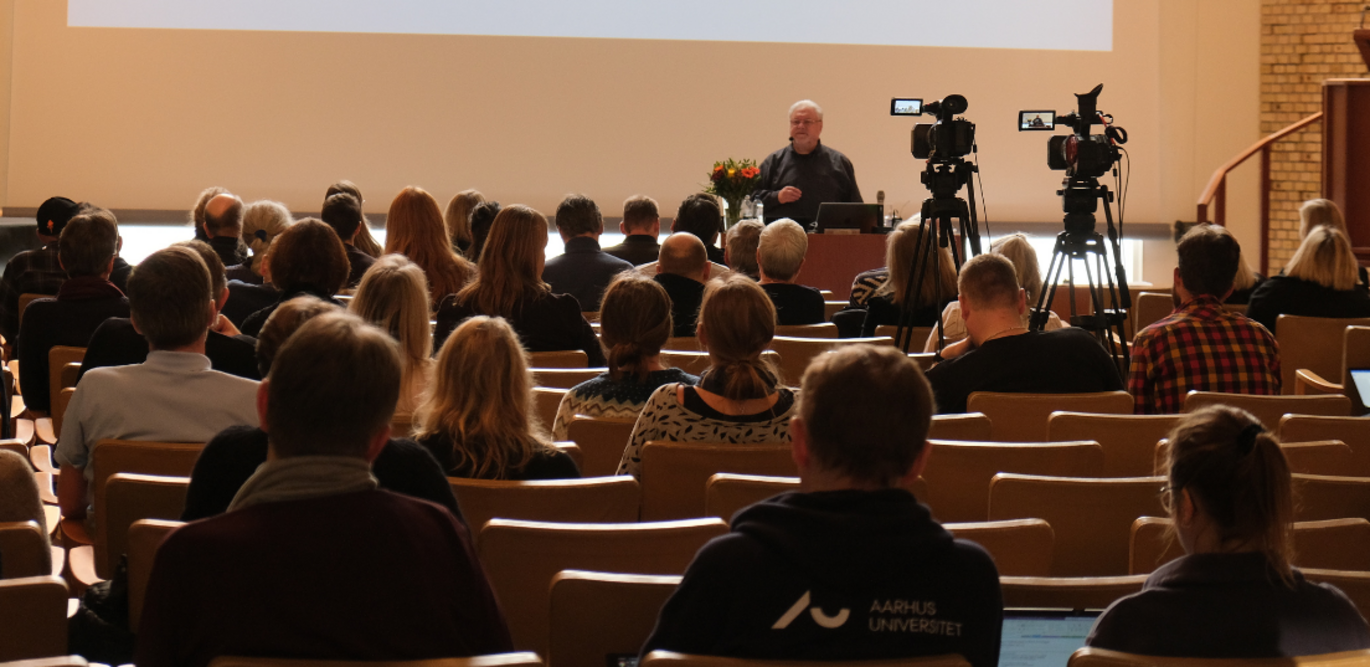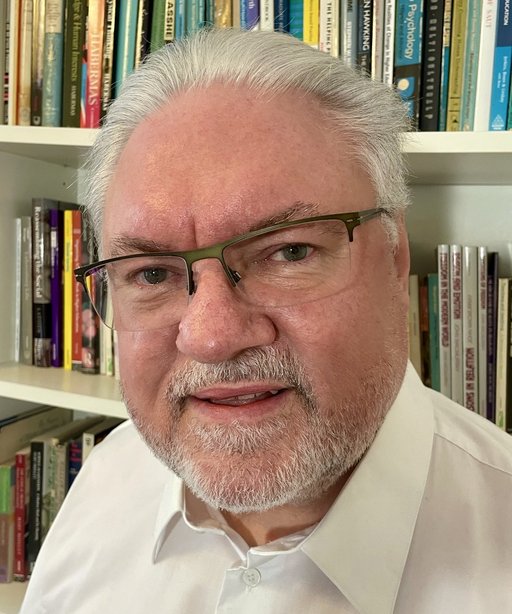Students want more – lecturers feel they’re already giving more than enough: Why we need a feedback revolution
Good feedback is not the responsibility of lecturers alone. That was the main message of a lecture and workshop on feedback held by professor David Boud from the University of Technology in Sydney on Tuesday. A message that resonated with Assistant Professor Anders Damsgaard from the Department of Geoscience, who participated in both the lecture and the workshop.

David Boud’s advice on how to give good feedback
1) Making comments on a paper or grade isn’t feedback.
2) Feedback must point forward.
3) Good feedback requires dialogue and involvement on the part of the student.
4) Feedback must be provided in time for the student to implement it in their work.
5) Learning to ask for specific feedback benefits students.
Students want more feedback. But at the same time, many lecturers in higher education feel that they’re already spending far too much time on feedback relative to what they and their students get out of it.
This familiar dilemma was the focus of the lecture and workshop David Boud from the University of Technology in Sydney held on Tuesday at Aarhus University. Boud is one of the world’s most respective researchers in this area, according to Annika Büchert Lindberg, an educational development consultant at the Centre for Educational Development at AU who invited Boud to Denmark.
“First, I’d like to address the problem with feedback,” Boud began his lecture. According to Boud, writing a lot of detailed comments and notes on a student essay and expecting students to learn from it is not feedback.
“Feedback is always forward-looking, so it’s not feedback to provide comments on something that has already happened. Grading – or comments on grades – isn’t feedback either,” he explained, highlighting the paradox inherent in the term: feedback sounds like something that looks backward, while in fact the opposite is the case.

Misunderstandings
Another problem Boud pointed out is that many lecturers feel that even though they spend a lot of time giving students feedback, it doesn’t really seem to make much of a difference.
“This is a problem that has arisen due to misunderstandings. There’s no consensus among students and lecturers about what feedback is, and so we need to redefine what it means to give feedback,” he said.
It’s also important that feedback always has a clear purpose.
“Feedback has to be given in time for the work to be improved. And it has to be possible to see a difference in the work before and after the feedback. To design good feedback, students need to know what the purpose of the feedback is and what their role is. They have to understand the information they get, and it has to be possible for them to act on the feedback. And then you need to ask yourself what effects you’re looking for to ensure that the feedback worked,” Boud said.
So because feedback needs to be actionable, the feedback expert urged lecturers to give up the “absurd ritual” of giving feedback at the end of a course: by this point, the feedback is too late to have an effect, because the students are already moving on and have put the work behind them.

The focus has to be shifted from lecturer to student
Another of Boud’s conclusions was that we need to replace our lecturer-oriented concept of feedback with a student-oriented concept.
“That’s one of the latest revolutions in our thinking about feedback,” Boud said. “Student-oriented feedback centres on the individual students and requires them to contribute as well, for example by asking for feedback on a specific aspect of their work.”
It takes effort to ask for feedback and define what you specifically want feedback on. And to help understand how this kind of feedback works, we need to look at the business world. Because according to Boud, most of the literature on learning to give and ask for feedback effectively is aimed at business professionals.
As Boud sees it, the lecturer’s role is to equip students to understand and apply feedback in order to improve their performance and learning outcomes. And gradually, they also need to learn to seek out feedback themselves. This is an important skill they’ll need in their professional lives.
Lindberg agrees with Boud about this.
“Students are better prepared for the job market that awaits them if they get experience with how feedback can improve their work and learn how to participate in different feedback processes in the course of their studies,” she said. “Students also need to learn to actively seek out feedback themselves and to be specific when they do so. This will make it easier for them to ask for feedback both from their lecturers and in their future jobs.”
At the same time, she stressed that naturally, what constitutes good feedback differs a lot from course to course, because the learning goals are very different. For this reason, Aarhus University doesn’t have a general template for how lecturers should work to develop their feedback processes. Instead, Lindberg said, lecturers should discuss their feedback processes with each other.
“That’s also why we put on an event like this one today,” she explained. “Right now we’re working on providing inspiration and support for the development of feedback processes, so the lecturers have a place to start.”
After feedback expert David Boud’s lecture, the Centre for Educational Development hosted two workshops where lecturers from across the university had an opportunity to discuss some of Boud’s points. Lindberg said that she hopes that both the lecture and the subsequent workshops will give lecturers food for thought in relation to how they can design feedback processes that can support students’ learning processes. Lecturers can then discuss how these processes can contribute to more useful feedback with their students.
“To begin with, our goal is for the lecturers to work on developing the feedback processes in their courses and to communicate their new insights into feedback to their students,” said the educational development consultant. “But if students are interested in this, it would certainly be interesting to hold a similar event for students sometime in the future, preferably in collaboration with lecturers.”
Further reading about feedback
- In his lecture, David Boud referred to the website Feedback for Learning, which he contributes to. The website contains information about the publications, case studies and definitions he presented in the lecture.
- Lecturers can learn more about feedback on the AU Educate website, a good source of practical examples and suggested activities.
- The Centre for Educational Development offers various workshops on feedback for lecturers at all stages of their careers.
- Students can find information about and tips on feedback on the Studypedia website.
Food for thought
Anders Damsgaard is one of the lecturers at Boud’s lecture who also participated in one of the workshops. An assistant professor at the Department of Geoscience, he took copious notes during the lecture.
“For me, a central point was that lecturers should spend time thinking through the concept of giving feedback for students,” he said. “A lot of the points in the lecture seem obvious, but they really aren’t until you’ve sat down and thought them over.”
Damsgaard learned about peer feedback from his university pedagagogy training course, and has used it in his own classes. But even though he’s used to using structured feedback, Boud’s lecture has given him food for thought.
“One of the points from the lecture was that the giver of peer feedback gets more out of it than the receiver,” he said. “It’s smart to improve peer feedback, because as the giver, you have to be very clear about why something works and why something else doesn’t, and that improves students’ ability to reflect on their own work. Thanks to the workshop, I now have a better framework for evaluating when a feedback situation is working, and how to optimize it if it isn’t working.”

